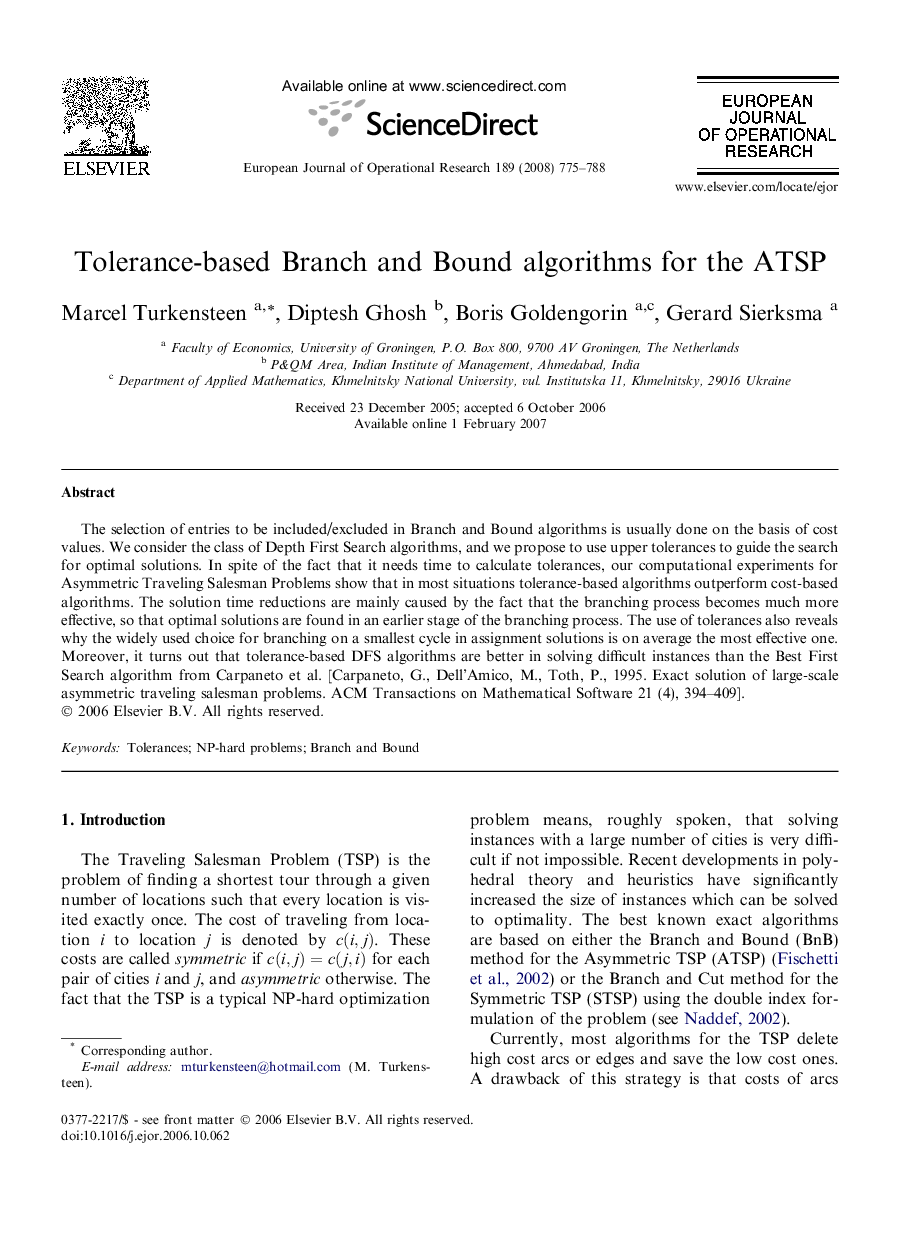| Article ID | Journal | Published Year | Pages | File Type |
|---|---|---|---|---|
| 481998 | European Journal of Operational Research | 2008 | 14 Pages |
The selection of entries to be included/excluded in Branch and Bound algorithms is usually done on the basis of cost values. We consider the class of Depth First Search algorithms, and we propose to use upper tolerances to guide the search for optimal solutions. In spite of the fact that it needs time to calculate tolerances, our computational experiments for Asymmetric Traveling Salesman Problems show that in most situations tolerance-based algorithms outperform cost-based algorithms. The solution time reductions are mainly caused by the fact that the branching process becomes much more effective, so that optimal solutions are found in an earlier stage of the branching process. The use of tolerances also reveals why the widely used choice for branching on a smallest cycle in assignment solutions is on average the most effective one. Moreover, it turns out that tolerance-based DFS algorithms are better in solving difficult instances than the Best First Search algorithm from Carpaneto et al. [Carpaneto, G., Dell’Amico, M., Toth, P., 1995. Exact solution of large-scale asymmetric traveling salesman problems. ACM Transactions on Mathematical Software 21 (4), 394–409].
